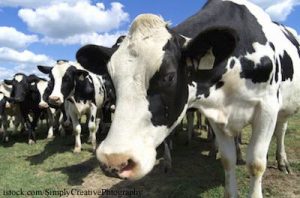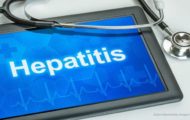A new study conducted by the U.S. Department of Agriculture (USDA) and published in Agricultural Research magazine is finding that about 2% of cattle in this country may be “supershedders” who shed high levels of pathogenic E. coli O157:H7 in their manure. This information comes as an E. coli O157:H7 outbreak in Michigan and Ohio is associated with undercooked ground beef.
 Supershedding is very problematic because it could “increase the amount of E. coli O157:H7 that makes its way from pasture or feedlot pen into the packing houses where steaks, roasts, ground round, or other beef products are prepared.” This study may provide new ways to curb shedding of this bacterium.
Supershedding is very problematic because it could “increase the amount of E. coli O157:H7 that makes its way from pasture or feedlot pen into the packing houses where steaks, roasts, ground round, or other beef products are prepared.” This study may provide new ways to curb shedding of this bacterium.
The study was conducted on 6,000 head of feedlot cattle and more than 13,000 manure, hide, and carcass samples. Scientists found that in supershedders, the O157 colonization occurs not just in the lower digestive tract, but throughout the animal’s entire digestive system. And they found that supershedding isn’t limited to one particular O157 strain. That means tactics to reduce supershedding can’t target a specific strain of E. coli bacteria.
For an intervention to be successful in reducing transmission of E. coli O157:H7, “no more than 20 percent of the cattle targeted by the intervention would be shedding the microbe at any one time, and none would be shedding it at super shedder quantities,” according to the study.
While the industry, government, and scientists struggle with this issue, you can keep your family safe by handling ground beef and hamburger properly. Treat all meat in your house as if it was contaminated. Avoid cross-contamination by keeping it separate from other foods. Always wash your hands, work surfaces, and utensils after using ground beef. And always cook ground beef, even in burgers, to a minimum temperature of 160°F and test that temperature with a reliable meat thermometer.
When you eat out in restaurants, never order burgers less than well done. Make sure that the meat is cooked properly before you take a bite, and don’t hesitate to tell the waiter if it’s not correctly cooked. The current E. coli O157:H7 outbreak in Michigan and Ohio is associated with rare burgers and undercooked hamburger served in restaurants.




